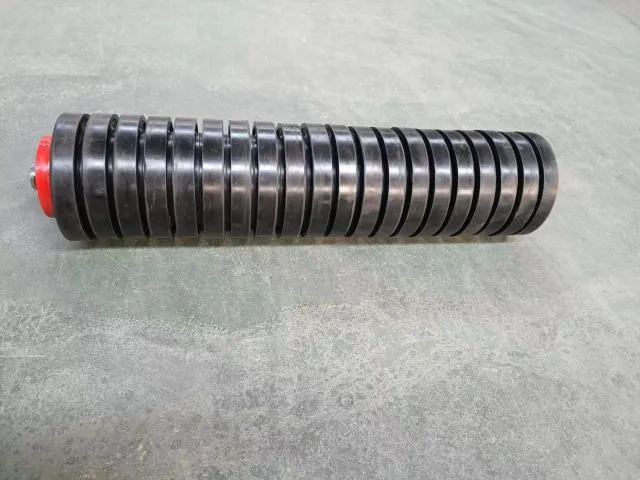 Afrikaans
Afrikaans  Albanian
Albanian  Amharic
Amharic  Arabic
Arabic  Armenian
Armenian  Azerbaijani
Azerbaijani  Basque
Basque  Belarusian
Belarusian  Bengali
Bengali  Bosnian
Bosnian  Bulgarian
Bulgarian  Catalan
Catalan  Cebuano
Cebuano  Corsican
Corsican  Croatian
Croatian  Czech
Czech  Danish
Danish  Dutch
Dutch  English
English  Esperanto
Esperanto  Estonian
Estonian  Finnish
Finnish  French
French  Frisian
Frisian  Galician
Galician  Georgian
Georgian  German
German  Greek
Greek  Gujarati
Gujarati  Haitian Creole
Haitian Creole  hausa
hausa  hawaiian
hawaiian  Hebrew
Hebrew  Hindi
Hindi  Miao
Miao  Hungarian
Hungarian  Icelandic
Icelandic  igbo
igbo  Indonesian
Indonesian  irish
irish  Italian
Italian  Japanese
Japanese  Javanese
Javanese  Kannada
Kannada  kazakh
kazakh  Khmer
Khmer  Rwandese
Rwandese  Korean
Korean  Kurdish
Kurdish  Kyrgyz
Kyrgyz  Lao
Lao  Latin
Latin  Latvian
Latvian  Lithuanian
Lithuanian  Luxembourgish
Luxembourgish  Macedonian
Macedonian  Malgashi
Malgashi  Malay
Malay  Malayalam
Malayalam  Maltese
Maltese  Maori
Maori  Marathi
Marathi  Mongolian
Mongolian  Myanmar
Myanmar  Nepali
Nepali  Norwegian
Norwegian  Norwegian
Norwegian  Occitan
Occitan  Pashto
Pashto  Persian
Persian  Polish
Polish  Portuguese
Portuguese  Punjabi
Punjabi  Romanian
Romanian  Russian
Russian  Samoan
Samoan  Scottish Gaelic
Scottish Gaelic  Serbian
Serbian  Sesotho
Sesotho  Shona
Shona  Sindhi
Sindhi  Sinhala
Sinhala  Slovak
Slovak  Slovenian
Slovenian  Somali
Somali  Spanish
Spanish  Sundanese
Sundanese  Swahili
Swahili  Swedish
Swedish  Tagalog
Tagalog  Tajik
Tajik  Tamil
Tamil  Tatar
Tatar  Telugu
Telugu  Thai
Thai  Turkish
Turkish  Turkmen
Turkmen  Ukrainian
Ukrainian  Urdu
Urdu  Uighur
Uighur  Uzbek
Uzbek  Vietnamese
Vietnamese  Welsh
Welsh  Bantu
Bantu  Yiddish
Yiddish  Yoruba
Yoruba  Zulu
Zulu urethane drive rollers
Understanding Urethane Drive Rollers A Key Component in Modern Conveyance Systems
Urethane drive rollers are essential components in various mechanical systems, particularly in conveyor applications. Their unique properties and versatility make them an ideal choice for numerous industries, ranging from manufacturing to packaging. This article explores the characteristics, advantages, and applications of urethane drive rollers, as well as considerations for their selection and maintenance.
What Are Urethane Drive Rollers?
Urethane drive rollers are cylindrical components coated or constructed from polyurethane, a polymer that offers a blend of flexibility, resilience, and durability. These rollers are designed to transmit motion and facilitate the movement of goods through conveyor systems. Urethane is known for its strength and elasticity, making it an excellent choice for rollers that need to endure significant wear while maintaining performance.
Advantages of Urethane Drive Rollers
1. Durability Urethane drive rollers have a longer lifespan compared to traditional rubber rollers. They resist wear, abrasion, and tearing, which can be critical in fast-paced industrial environments where equipment operates continuously.
2. Shock Absorption The elastic nature of urethane allows these rollers to absorb shocks and vibrations effectively. This capability protects both the drive system and the materials being transported, ensuring smooth operation and reducing the risk of damage.
3. Operating Range Urethane can function effectively across a wide range of temperatures and conditions. It maintains its performance in both low and high-temperature scenarios, providing versatility for various operational environments.
4. Chemical Resistance Urethane rollers demonstrate strong resistance to chemicals and oils, making them suitable for use in environments where exposure to corrosive substances is a concern.
5. Low Noise Production Compared to metal rollers, urethane rollers tend to operate more quietly, contributing to a better working environment, especially in facilities where noise levels are a concern.
Applications of Urethane Drive Rollers
urethane drive rollers

Urethane drive rollers are utilized in multiple industries, reflecting their adaptability and reliability
- Manufacturing In assembly lines, urethane rollers facilitate the smooth transport of products between stations, ensuring efficiency and minimizing downtime.
- Packaging Urethane rollers are particularly useful in the packaging industry as they guide and move products through various packing machines, enhancing speed and efficiency.
- Food Processing Given their cleanliness and resistance to microbial growth, urethane rollers are often selected for food processing conveyances, ensuring hygiene standards are met without compromising their durability.
- Automotive In automotive production, urethane rollers are critical for moving components along assembly lines, allowing for the smooth integration of various parts.
Selecting Urethane Drive Rollers
When choosing urethane drive rollers for a specific application, several factors should be considered
- Load Capacity Ensure that the selected roller can handle the weight and size of the items it will transport. - Durometer Hardness The hardness of the urethane affects its grip and wear characteristics. A softer durometer provides better grip, while a harder one may offer greater durability. - Environmental Conditions Consider the temperature range, exposure to chemicals, and other environmental factors that may affect roller performance. - Maintenance Regular inspections and maintenance can help extend the life of urethane rollers. Check for wear and tear, and replace rollers as necessary to ensure optimal performance.
Conclusion
Urethane drive rollers represent a vital component in modern conveyor systems, offering benefits that improve efficiency, durability, and safety in various applications. Their unique properties make them a preferred choice across multiple industries, from manufacturing to food processing. By understanding their advantages and carefully selecting the right rollers for specific applications, businesses can enhance their operational performance and achieve better outcomes in their logistics and production processes.
-
Revolutionizing Conveyor Reliability with Advanced Rubber Lagging PulleysNewsJul.22,2025
-
Powering Precision and Durability with Expert Manufacturers of Conveyor ComponentsNewsJul.22,2025
-
Optimizing Conveyor Systems with Advanced Conveyor AccessoriesNewsJul.22,2025
-
Maximize Conveyor Efficiency with Quality Conveyor Idler PulleysNewsJul.22,2025
-
Future-Proof Your Conveyor System with High-Performance Polyurethane RollerNewsJul.22,2025
-
Driving Efficiency Forward with Quality Idlers and RollersNewsJul.22,2025





























